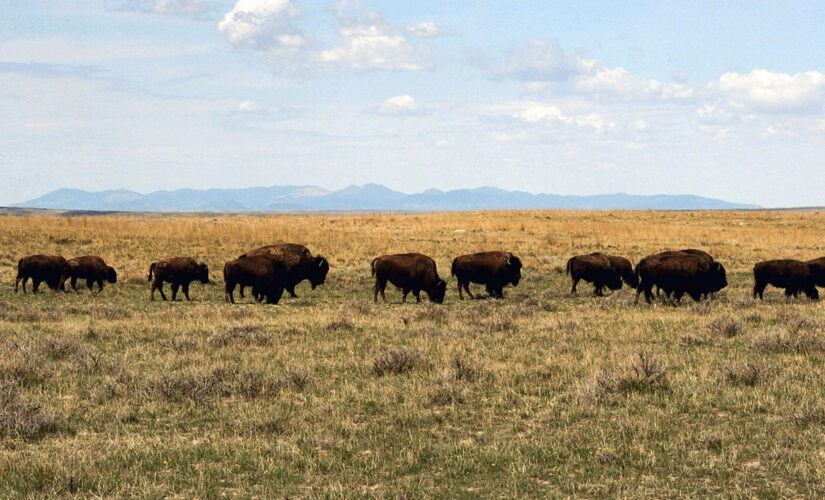NEWYou can now listen to Fox News articles!
FIRST ON FOX: Montana filed a legal challenge against the Biden administration Friday, challenging a decision that take large swaths of land out of agricultural production.
The filing, spearheaded by Montana Attorney General Austin Knudsen, challenges a decision the Bureau of Land Management (BLM) issued in late July approving a request from the American Prairie Reserve (AP), a conservation nonprofit organization, to allow bison grazing across tens of thousands of acres in central Montana. The decision effectively took large swaths of federal land once used for livestock grazing out of production.
“BLM’s final decision ignores what makes Montana’s rural communities unique, prioritizing elitist land management attitudes over economic realities for the generational ranchers who rely on this land,” the challenge stated.
“As the American Prairie Reserve occupies more and more land, it pushes these ranching communities out, threatening the livestock industry and defying the very purpose of the federal laws BLM purports to uphold,” it continued.
BILLIONAIRE-FUNDED ECO GROUP QUIETLY TAKING FARMLAND OUT OF PRODUCTION IN RURAL AMERICA
A herd of bison move through land controlled by the American Prairie Reserve south of Malta, Montana.
(AP Photo/Matt Brown)
The challenge was filed in the Department of the Interior’s Departmental Cases Hearings Division, which serves as the agency’s administrative trial court.
Over the past 20 years, the AP has leased 334,000 acres of public land owned primarily by the federal government in addition to the 118,000 acres of private land it has purchased. The group’s mission is to eventually stitch together about 3.2 million acres of land and create the largest “fully functioning ecosystem” in the continental U.S. as part of a conservation project.
BIDEN EPA PROPOSES REGULATION THAT FARMERS WARN WILL DRIVE FOOD PRICES HIGHER
But part of the AP’s mission includes a plan to release wild bison onto its purchased and leased properties in an effort to “re-wild” the land, a proposal the complaint Friday alleged violates the Taylor Grazing Act, a 1934 law that opens public lands up for private livestock grazing. The legislation was passed to ensure adequate food and livestock production across the country.
“Whether APR classifies its bison as conservation animals, non-production animals, or as wildlife, the fact remains that they are not livestock for purposes of the laws that provide for grazing activities,” the state’s challenge stated.
Montana Attorney General Austin Knudsen filed the legal challenge Friday.
The July 28 decision issued by the BLM green lit bison grazing on an additional 63,500 acres of federal property.
Montana state officials and local ranchers have argued that the bison grazing proposal would ultimately remove land, which could otherwise be used for cattle grazing, out of production and decrease the amount of land available for ranchers.
“The BLM’s decision ignores the real concerns of rural communities and ranchers who rely on the land in favor of elitist attitudes of those seeking to transform Northeast Montana into a wildlife viewing shed for tourists,” Knudsen told Fox News Digital. “Agriculture is not an easy way of life, but Montana ranch families – including my own – are proud of their history and heritage that is still a part of our state today.”
Grass-fed cattle gather on a farm.
(AP)
“As American Prairie Reserve occupies more and more land here, it pushes out ranching communities, threatens our livestock industry, and will ultimately add to the instability of the world’s food supply,” Knudsen continued.
Montana has a roughly $4.72 billion agriculture industry and its ranchers operate an inventory of 2.2 million cattle.
The BLM didn’t immediately respond to a request for comment.




